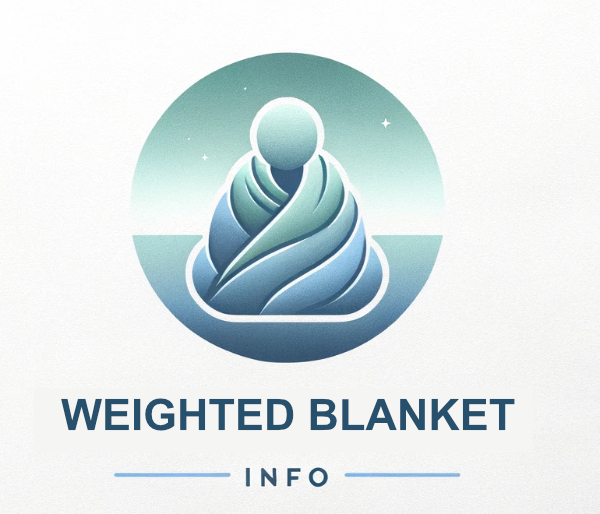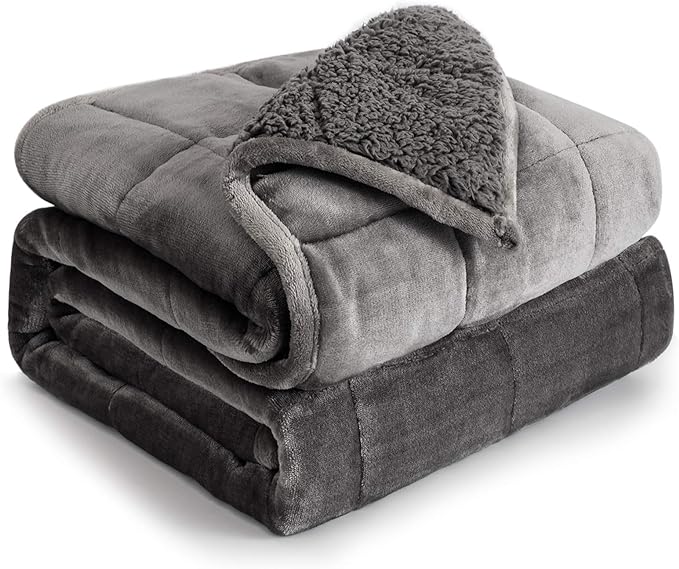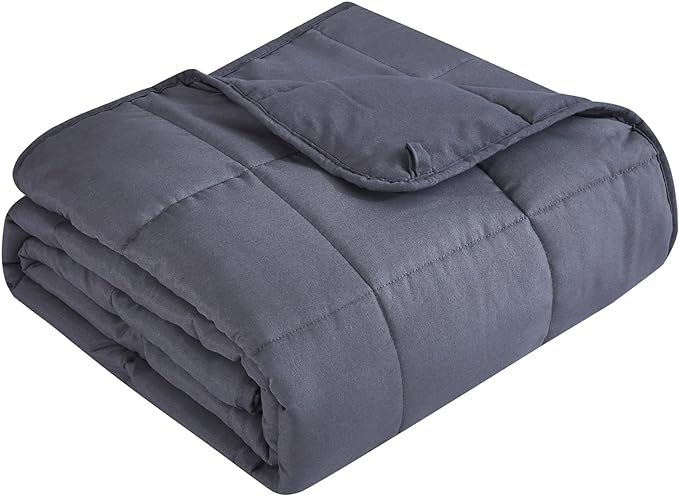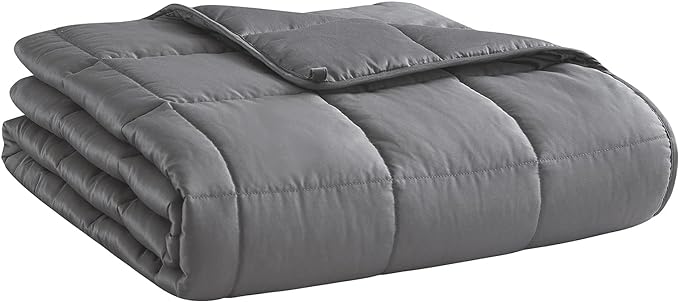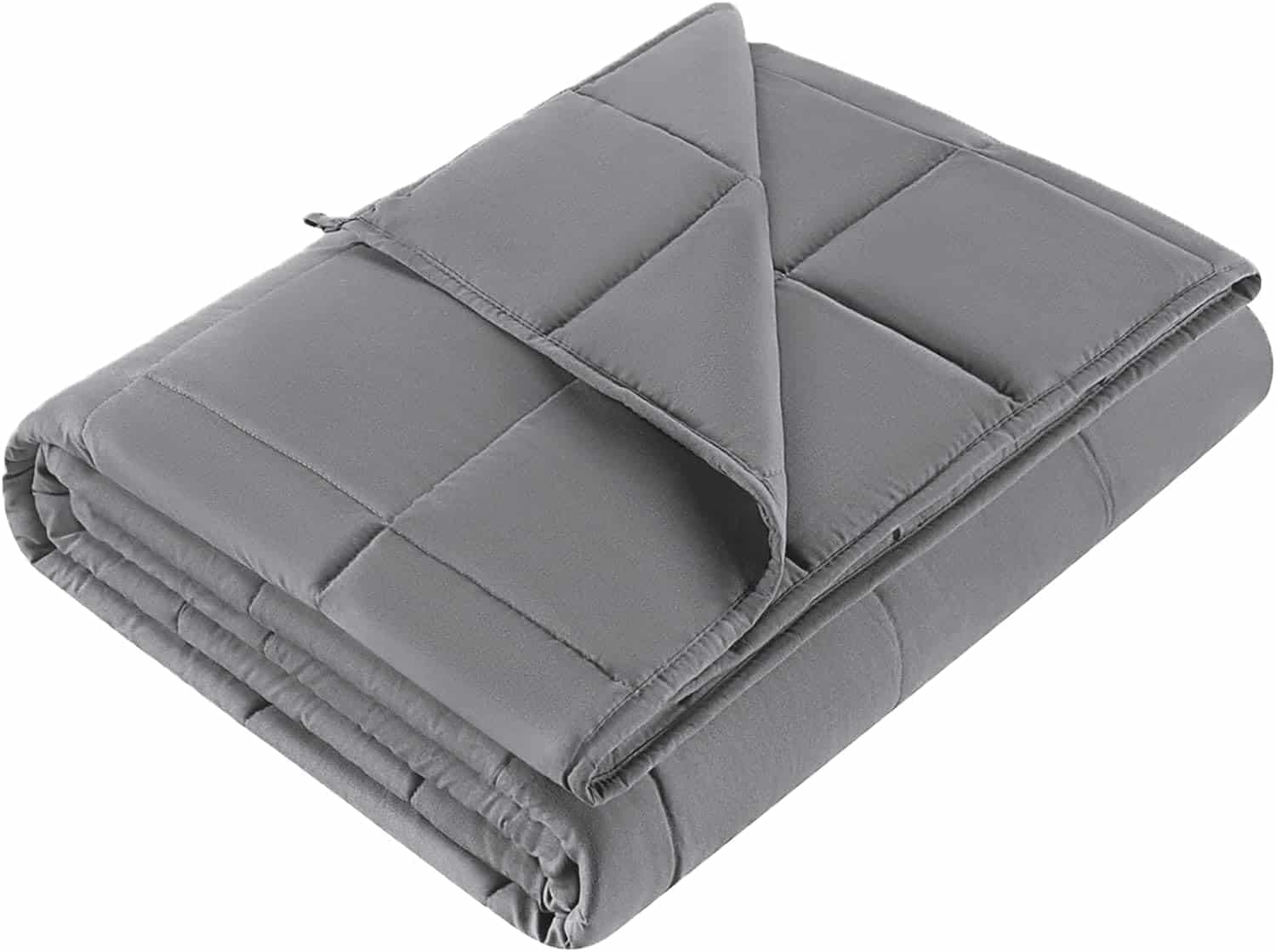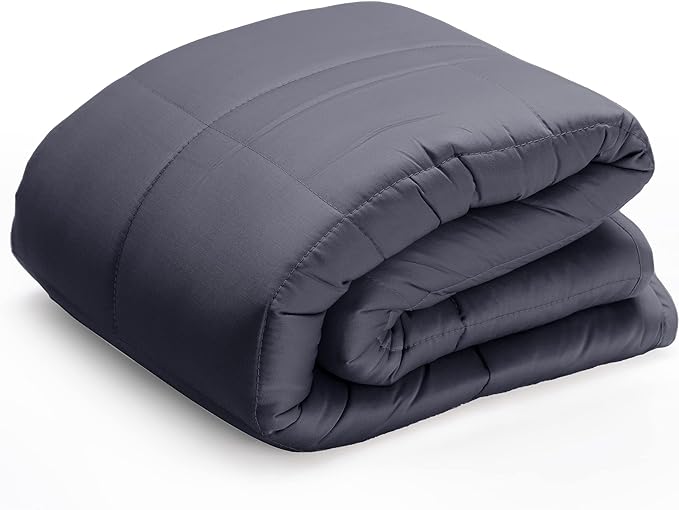
A weighted blanket is a unique type of blanket intentionally designed to have more weight than traditional blankets. There are two primary styles of weighted blankets: knitted and duvet style. Duvet-style weighted blankets achieve their added weight through materials like plastic or glass beads, ball bearings, or other heavy fill, while knitted weighted blankets are crafted using dense yarn.
The versatility of weighted blankets allows you to use them not only on your bed but also on the couch or wherever you prefer to relax.
Weighted blankets draw inspiration from a therapeutic technique known as deep pressure stimulation, which leverages controlled, firm pressure to induce a profound sense of calm. These blankets have demonstrated both subjective and objective benefits for sleep.
Providing Comfort and Security: Much like the comforting embrace of a tight swaddle for newborns, weighted blankets offer a sense of security. Many individuals find that these blankets help them fall asleep faster by promoting a feeling of safety.
Easing Stress and Anxiety: Weighted blankets have shown promise in managing feelings of stress and anxiety. Given that stress and anxiety can often disrupt sleep patterns, the use of a weighted blanket may lead to improved sleep quality for those contending with anxious thoughts.
Enhancing Sleep Quality: Weighted blankets employ deep pressure stimulation, which is believed to trigger the production of serotonin, a mood-elevating hormone. Simultaneously, they may reduce cortisol, the stress hormone, and elevate melatonin levels, the hormone responsible for facilitating sleep. These combined effects potentially contribute to overall improved sleep quality.
Calming the Nervous System: An overactive nervous system can result in symptoms like anxiety, hyperactivity, an accelerated heart rate, and breathlessness, all of which are detrimental to sleep. Weighted blankets distribute weight and pressure evenly across the body, potentially calming the fight-or-flight response and activating the soothing parasympathetic nervous system, preparing the body for rest.
While many users report experiencing significant benefits from weighted blankets, there remains some debate about whether these blankets deliver all the benefits claimed by manufacturers. As is prudent with any product claiming medical benefits, it’s advisable to approach their use with caution.
Individuals experiencing persistent sleep problems should consult with a healthcare professional, who can provide a comprehensive evaluation and determine whether incorporating a weighted blanket into their sleep routine could be a beneficial part of their treatment plan.
Weighted blankets hold the potential to benefit a wide range of sleepers, especially those dealing with elevated stress levels or specific medical conditions. In particular, individuals with autism, anxiety, depression, and attention deficit hyperactivity disorder (ADHD) may find therapeutic advantages in using weighted blankets.
Anxiety and Depression: People grappling with anxiety and depression often find themselves caught in a cycle where these conditions negatively impact their sleep, and in turn, inadequate sleep exacerbates their anxiety and depressive symptoms. The calming effects of a weighted blanket may contribute to better sleep for individuals dealing with these mental health challenges. Notably, a study indicated that weighted blankets helped reduce insomnia symptoms in individuals with anxiety, depression, bipolar disorder, and ADHD.
Autism Spectrum Disorders: Weighted blankets can activate the sense of touch, potentially helping individuals with autism spectrum disorders focus on the deep pressure sensation provided by the blanket rather than being overwhelmed by other sensory stimuli in their environment. This pressure may offer comfort and enable relaxation, even in potentially overstimulating situations. Although there is limited research on the objective sleep benefits, many children with autism express a preference for using weighted blankets.
In terms of safety, weighted blankets are generally regarded as safe, provided that the person using the blanket possesses adequate strength and physical dexterity to remove it if needed, thereby preventing suffocation or entrapment.
However, specific sleepers should exercise extra caution and consult with a healthcare professional before using a weighted blanket. This precaution is particularly relevant for individuals with certain medical conditions, including chronic respiratory or circulatory issues, asthma, low blood pressure, type 2 diabetes, or claustrophobia. Additionally, experts advise individuals with obstructive sleep apnea (OSA) to avoid using weighted blankets, as the added weight could restrict airflow.
While some weighted blankets are designed for children, it is important to note that infants and toddlers should not use weighted blankets due to the potential risk of becoming trapped underneath.
Selecting the right weighted blanket involves considering your own preferences. Most people find a weighted blanket equivalent to about 10% of their body weight to be comfortable, but individual preferences may vary. Weighted blankets are available in a range of weights, typically spanning from 7 pounds to 25 pounds, and are offered in standard bedding sizes such as twin, full, queen, and king. Some manufacturers also produce child-size or travel-size weighted blankets.
Weighted blankets are generally priced higher than regular throw blankets, typically falling within the range of $100 to $300. The more expensive models often feature more durable materials and may offer enhanced breathability or additional features.
Our Top Picks
# | Product | Title | Rating | |
1 | 4.5/5 | |||
2 | 4.5/5 | |||
3 | 4/5 | |||
4 | 4/5 | |||
5 | 4/5 | |||
6 | 4.5/5 |
